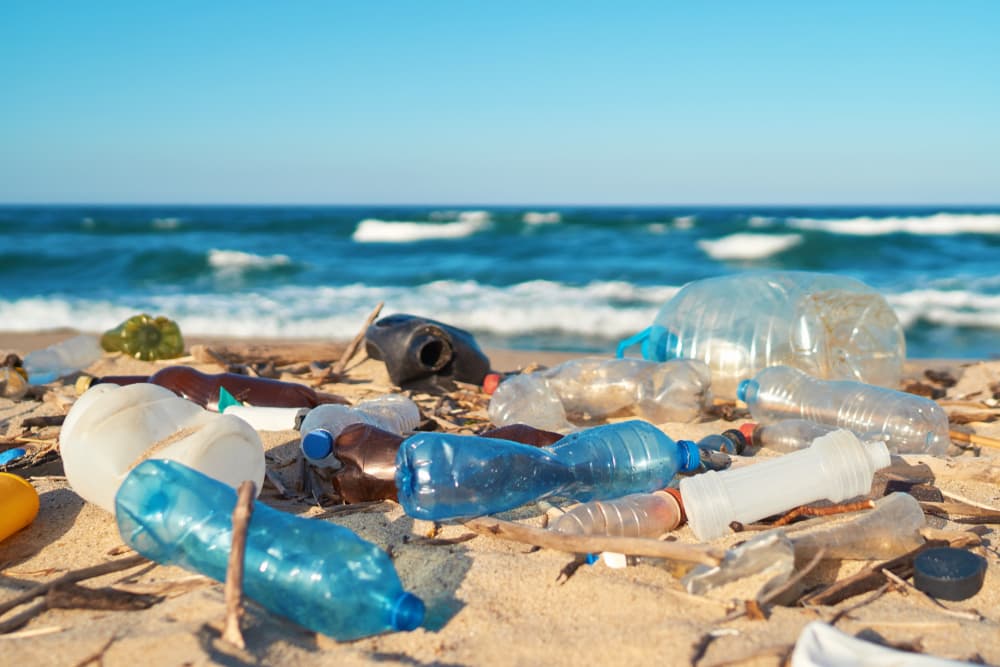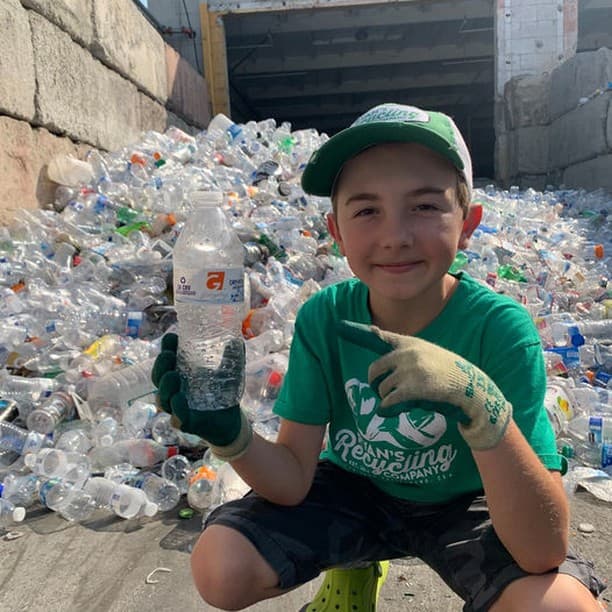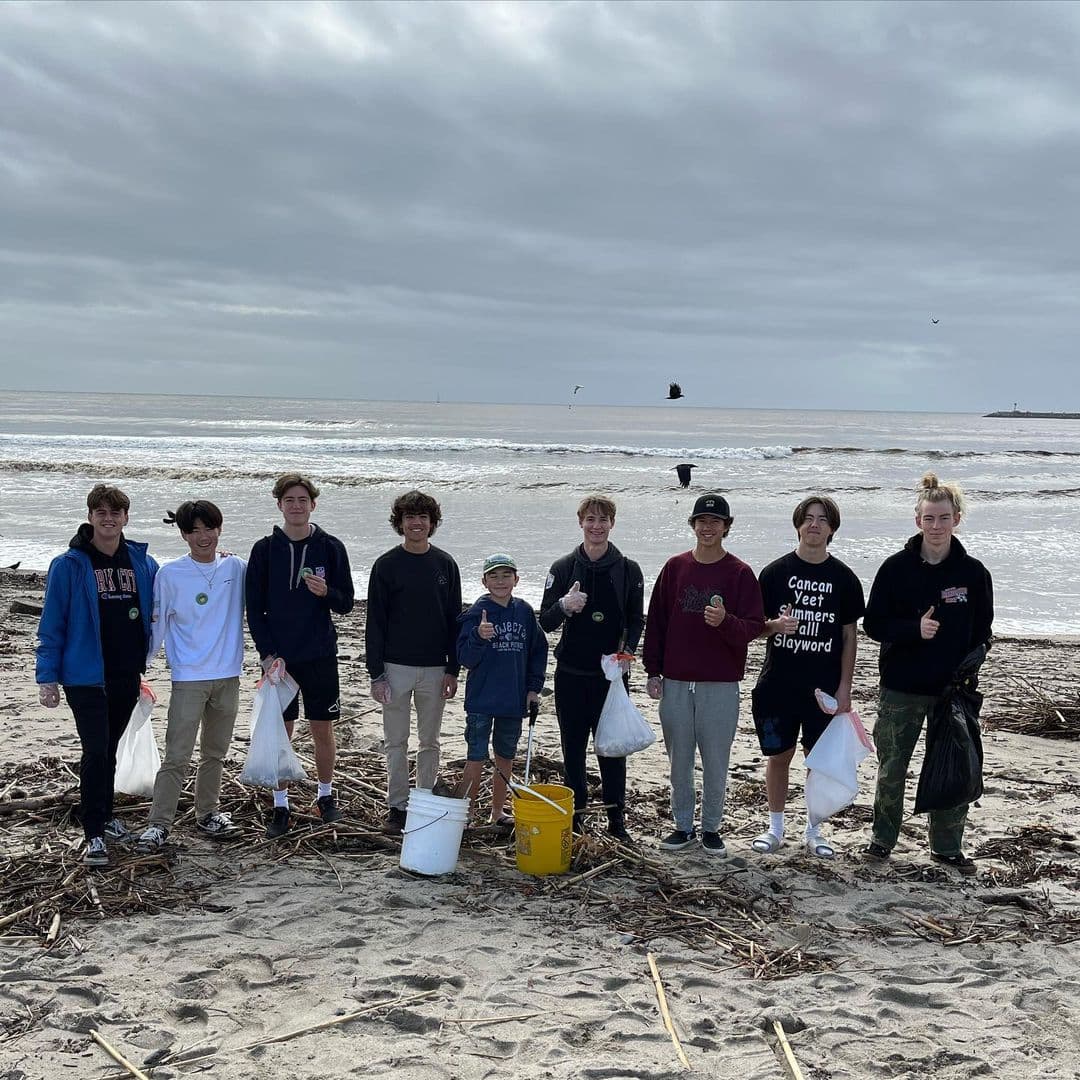Vast oceans cover 71 percent of our Earth, home to essential species and environments that support us in numerous ways: from providing nourishment to generating a habitable climate. Unfortunately, plastic pollution threatening our oceans is equally vast: 8 million tons are added annually. This presents a thorny problem for all of us – but there are things we can do to help protect this vital resource.
Here, we will share important insights into what ocean pollution is, how ocean pollution affects humans, and some tips on how to prevent ocean plastic pollution.
What Is Ocean Pollution?

Marine plastic pollution, also known as plastic pollution in the ocean, is a category of marine pollution brought on by plastics. The scale of marine plastic pollution can range from huge initial materials like bottles and bags to microplastics created when the plastic material is broken down. Most marine debris that floats or is suspended in the ocean is trash left over by humans.
How Does Ocean Plastic Pollution Affect Humans?
Plastic pollution is a pervasive issue that has far-reaching consequences, not only on marine life but also on human health. The quality and safety of food sources are at risk due to this problem and the vitality of coastal tourism. Furthermore, plastic contamination contributes significantly to climate change.
The direct effects of ocean plastic pollution on humans are mostly health-related. Ingestion of toxins from plastic poses serious risks, as the chemicals it contains are known to be connected to various diseases such as cancer and reproductive issues. Microplastics can also enter our food chain since they are small enough for animals and fish to ingest, eventually leading to human consumption.
From cancer to reduced fertility, congenital disabilities, and even psychological illnesses – the list of dangers associated with microplastics in our oceans is endless. These plastics are aesthetically damaging to marine life and laden with various hazardous chemicals such as neurotoxins, carcinogens, and endocrine disruptors.
How Can We Prevent Ocean Pollution?
The ocean pollution problem is serious and requires urgent action. Let us share tips to help you reduce your plastic garbage:
1. Reduce the Use of Single-Use Plastics
We must begin by reducing plastic usage in our daily lives to protect our oceans. Refuse single-use plastic items, use reusable containers whenever possible, and find sustainable alternatives to plastic. Refuse single-use plastic items and inform businesses that you would welcome sustainable options. By doing this, you are helping them transition to a greener business model while encouraging others to do the same.
2. Recycle

When possible, single-use plastics and other recyclable items should be responsibly recycled or thrown away in an appropriate container for disposal. Unfortunately, only 9% of plastic is recycled globally today. Recycling these materials assists with the significant issue of ocean pollution while also decreasing the amount of new plastic in circulation – it’s a win-win!
3. Participate in River and Beach Clean Ups

By joining or spearheading a beach and waterway cleanup event, do your part to save the oceans from plastic pollution! This is an immensely gratifying way of helping to eliminate plastics that are already in our waters and prevent more from entering them. You can participate as a beach clean up volunteer and remove the dangerous plastics at the oceanfront.
View this post on Instagram
4. Avoid Products that Contain Microbeads
Microbeads, tiny plastic particles found in numerous face scrubs, toothpaste, and body washes, are now threatening our oceans and waterways. Present in many of our health products due to their abrasive properties, these microplastics easily travel through the sewer system into rivers and eventually the ocean. To help protect hundreds of marine species while keeping yourself safe from harm, look for “polyethylene” or “polypropylene” on your cosmetic product labels before buying!
Start Your Recycling Journey!
Ocean plastic pollution is one of our most pressing environmental issues. It poses an immediate risk to marine life and humans alike and, left unchecked, will continue to worsen in years to come. Rampant plastic pollution can also lead to significant economic losses due to damage caused by debris in waterways, fisheries, or tourism-based businesses.
At Recycle From Home™, we provide easy recycling solutions for CA CRV materials such as plastic containers, aluminum cans, and glass bottles. With our service, you can conveniently recycle from your home, apartment or business in Irvine and Corona, California – with more cities on the way. Join us today to start your recycling journey and help reduce ocean plastic pollution! You may also download our convenient mobile app to make recycling even easier!

